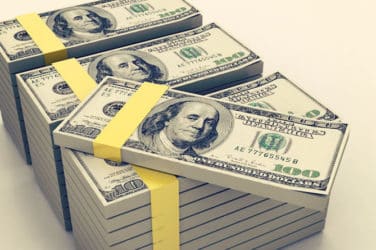
Source, the European exchange-traded fund issuer, expects more investors to use ETFs instead of futures as there have been 20 consecutive months of positive net ETF inflows in the region.
Jürgen Blumberg, head of European capital markets at Source, told Markets Media: “41% of futures investors are looking at ETFs and we expect some to switch in the fourth quarter.”
In a paper in April, “ETFs vs Futures”, Source said futures have become more expensive due to bank regulation while ETFs have become cheaper due to increased competition. For example, Source’s MSCI World ETF has cut its fees from 0.35% to 0.19%.
Source added that recent equity volatility has led to asset managers reducing their net long exposures to October 2011 levels. As a result dealers have been able to match more long trades with shorts and reduced futures costs, but Source warned that will change.
“We expect that, as volatility reduces, the usual imbalance between buyers and sellers in the futures markets will resume and futures costs will return to the levels we saw between 2013 and 2015,” said the report.
In addition Source said futures are particularly expensive relative to ETFs at the December roll as banks have less risk appetite at the financial year-end. “For investors planning to hold an exposure over the December-March period, it may make sense to buy ETFs instead of futures,” added Source.
ETFs/ETPs in Europe gathered $2.68 bn in net new assets in May marking 20 consecutive months of positive net inflows, taking European assets to $530bn (€470bn) according to preliminary data from independent research and consultancy firm ETFGI.
“At Source we have had year-to-date inflows of €700m with the flows into gold counterbalancing outflows from equities,” added Blumberg. “The vast majority of flows have been into gold as our ETF tracks the physical price very closely and has very high liquidity.”
In the first five months of this year European ETFs/ETPs had net inflows of $17.32bn. Fixed income gathered the largest net inflows of $16.14bn, followed by commodities with $6.30bn. However equities had net outflows $6.39bn over the same time period.
Deborah Fuhr, managing partner at ETFGI, said in a statement: “There is still a significant amount of uncertainty in the markets due to investors the upcoming Brexit vote and the expectation that the Fed will raise rates sooner than expected.”
In Europe BlackRock’s iShares gathered the largest net ETF/ETP inflows so far this year with $10.70bn. ETF Securities is in second place with $2.70bn of inflows and State Street’s SPDR ETFs is in third with US$1.55bn in net inflows.
More on ETFs:






